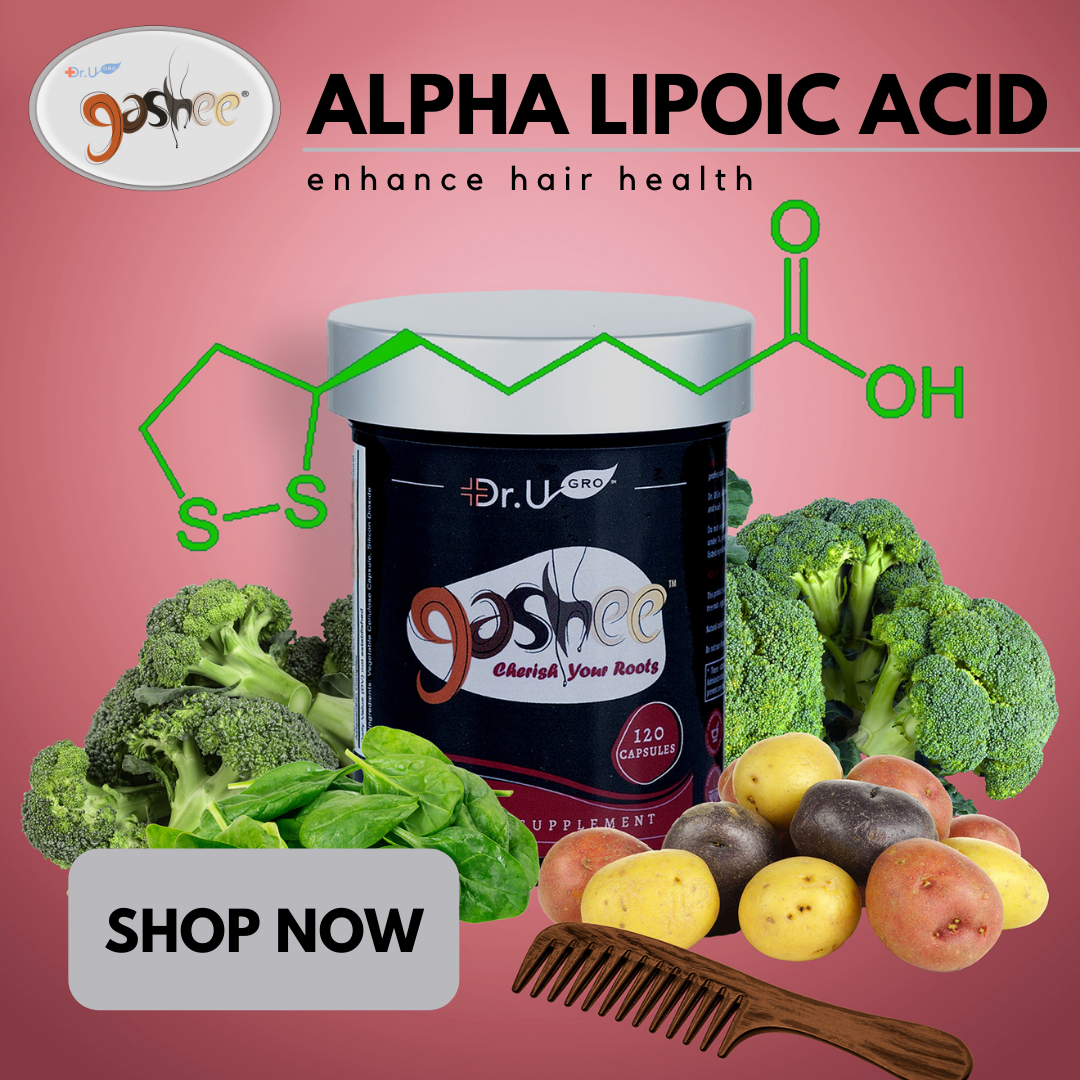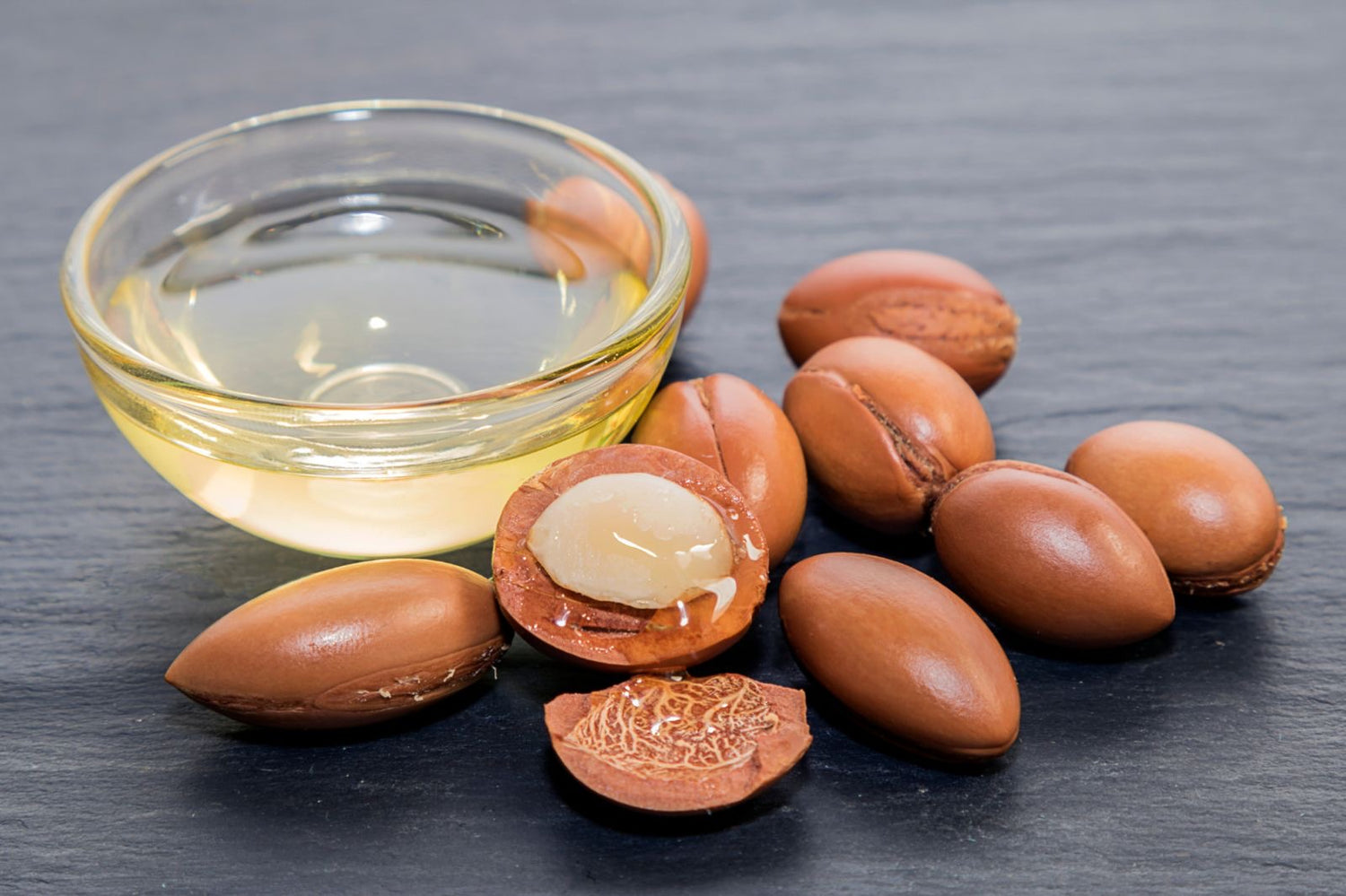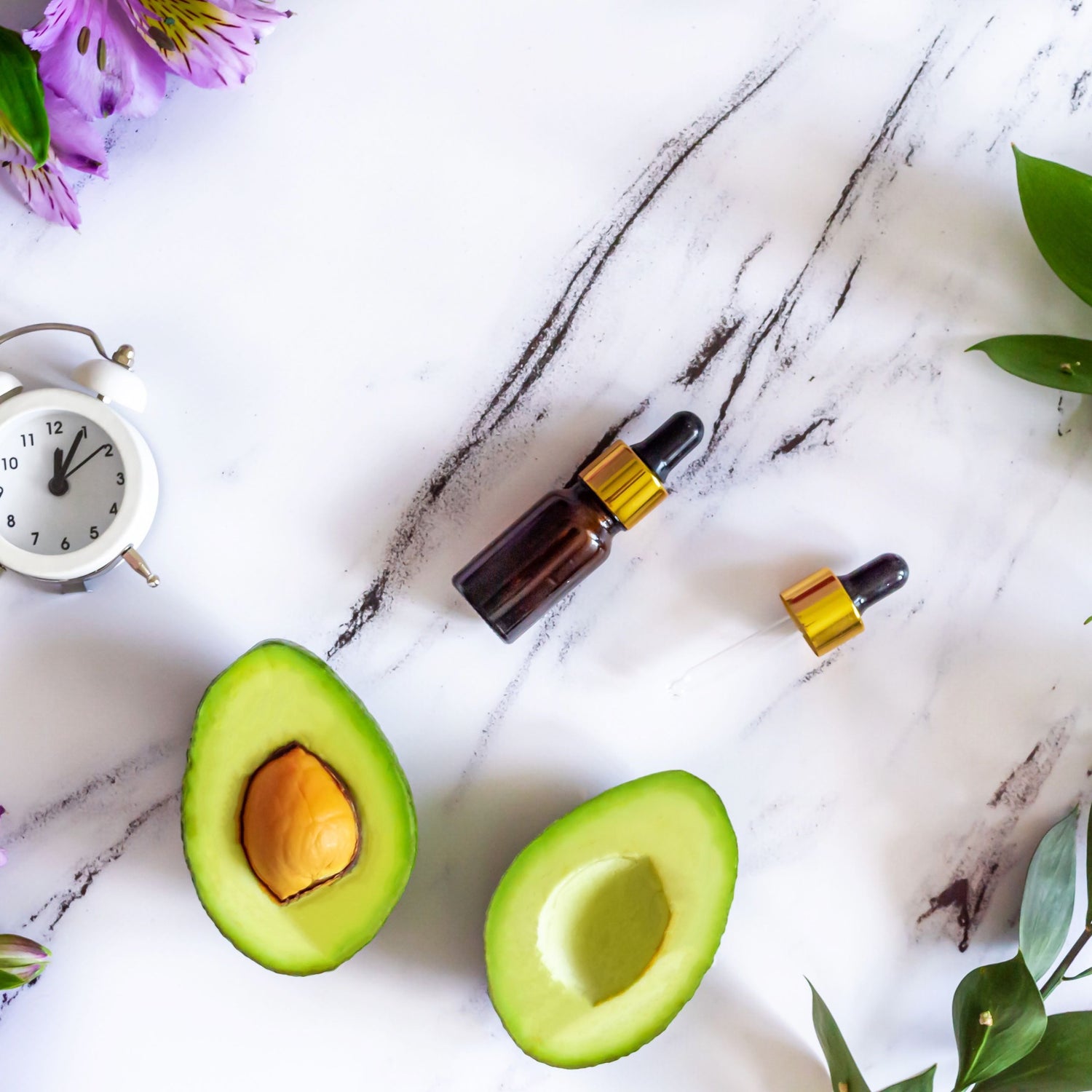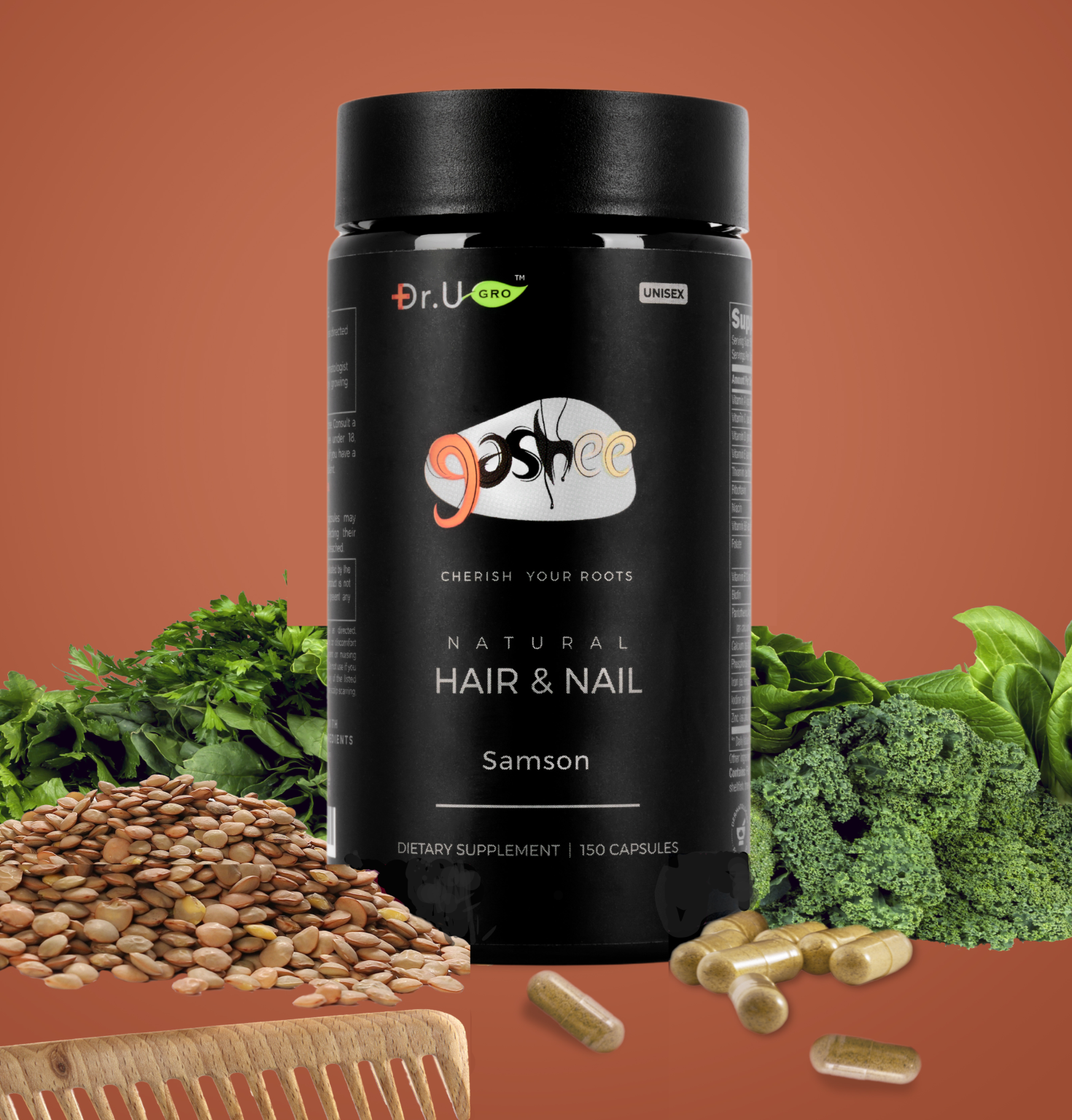Alpha Lipoic Acid Hair Benefits and Uses
Alpha Lipoic Acid Hair Benefits and Uses: Alpha-lipoic acid (ALA) has a crucial role in promoting hair growth and radiant skin. It's an organic compound that contributes to generating energy for the body by breaking down food. α-lipoic acid contains powerful antioxidant properties responsible for preventing cell damage while restoring vitamin E and vitamin C levels in the body.
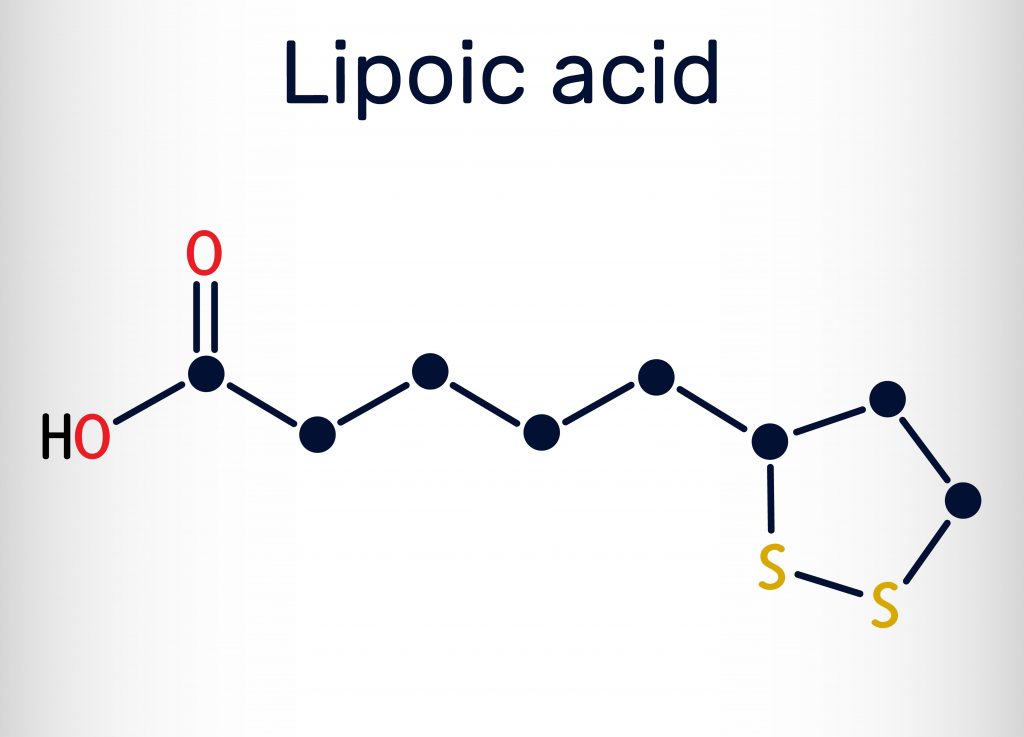
Hair Benefits of Alpha-Lipoic Acid

For individuals suffering from balding, chronic inflammation of hair follicles is one of the most common contributors to hair loss. Some conditions causing these inflammations include inflammatory skin conditions (such as cellulitis, folliculitis, and acne) and certain grooming practices, like repeatedly recreating tightly woven or pulled hairstyles. Luckily, ALA’s anti-inflammatory elements aid in slowing the hair-thinning process. A 2011 study published by Evidence-Based Complementary and Alternative Medicine showed that the combination of ALA, saw palmetto, and carnitine delivers a “two-pronged approach” in treating damaged hair follicles. More specifically, the research reported that ALA significantly reduces inflammation while saw palmetto suppresses DHT, an androgen molecule contributing to genetic hair loss in men. Similarly, another study published in 2013 found additional evidence surrounding ALA’s wound-healing properties. Using rats for the experiment, the researchers observed the surgical wounds on their skin. The study found that more than half of the animals treated with ALA showed an increased healing rate with less visible scarring. By eliminating inflammation while increasing the healing speed, ALA is ideal for individuals experiencing or preventing hair loss.
Other Beauty Benefits
Skin
Along with products promoting hair growth, ALA is found in skincare products that cater toward acne-prone skin. With its anti-inflammatory and antioxidant properties, it supports the skin by reducing the possibility of unwanted blemishes. ALA is also known to boost other antioxidants, like glutathione, to protect the skin further. It tackles aging skin by targeting damages caused by the sun’s ultraviolet rays and stresses generated by environmental factors. A 2013 study conducted by the European Journal of Pharmaceutics and Biopharmaceutics reported the positive effects of 5% topical ALA solution against facial wrinkles. As a result, the researchers observed a drastic reduction of fine lines in most of their participants.
Weight Loss
Some studies conducted through animal testing show that ALA reduces the activity of AMP-activated protein kinase (AMPK), which stimulates the feelings of hunger in the brain. A 2004 research by Nature Medicine supported this claim when it explained the crucial role of AMPK in regulating energy and food intake. Researchers announced that the suppression of AMPK allowed more calories to burn while the body was at rest. Other studies, however, found that ALA does not have a dramatic impact on human weight loss.
Medical Uses for Alpha-Lipoic Acid
In Europe, high doses of ALA are commonly used to treat diabetic patients with nerve pain. Supplements using ALA as their centric ingredient have also shown evidence to help with type 2 diabetes while relieving insulin resistance to a degree. For some people with diabetes, they also prevent damages to the retina. Additionally, ALA substances can be used to combat high cholesterol levels and obesity.
Different Ways to Take Alpha-Lipoic Acid
Although your body naturally produces ALA, certain foods help boost your intake. Red meat and organ meat — like liver and kidney — are the best animal sources of ALA. On the other hand, spinach, broccoli, rice bran, tomato, and Brussel sprouts are the best plant sources.
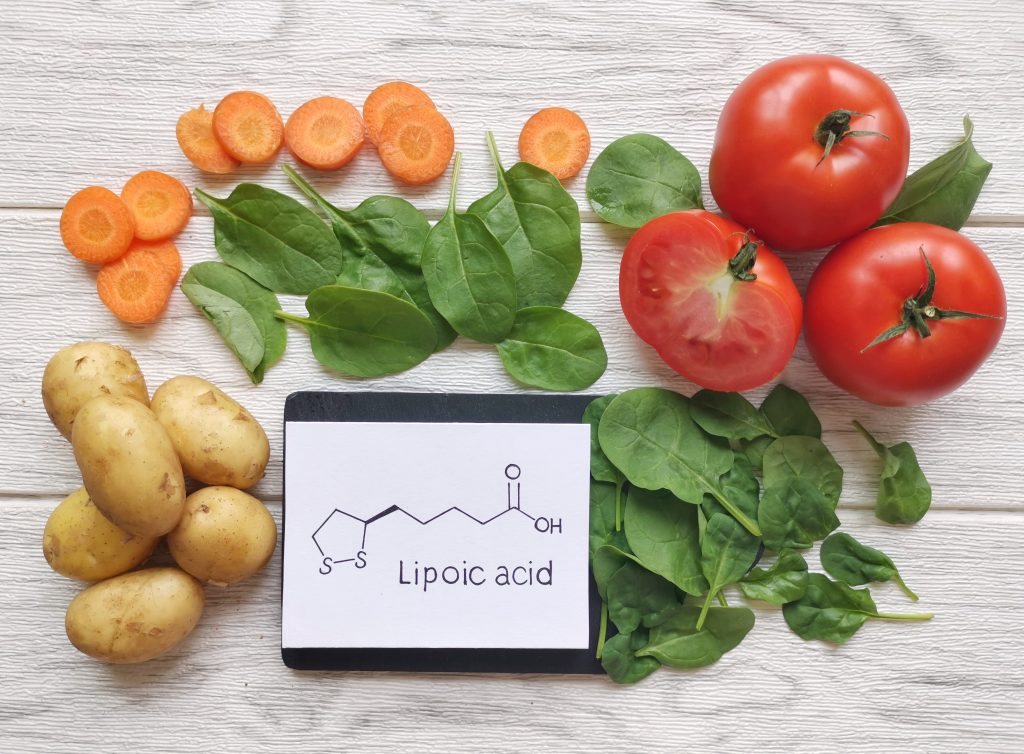
Other methods of taking ALA include creams and oral supplements. Most ALA-infused creams range from 1% to 5% concentrations with a combination of other moisturizing elements. However, oral supplements may be a more convenient option for those seeking hair benefits. Supplements using natural ingredients that are carefully formulated with proven results are recommended to ensure effectiveness. A supplement that includes ALA as an ingredient to promote hair growth is Gashee Botanical Hair Supplement. The product, packed with phytoactive ingredients, is formulated, tested, and approved by Dr. Sanusi Umar, a dermatologist and hair transplant specialist. Through the combination of all-natural ingredients, the botanical hair supplement is proven to boost hair growth with deep nourishment for maximum health. The formula is catered to suit adult men and women of all ages.
Side Effects and Precautions
Although there is little to no risk of side effects when using ALA, mild symptoms may include nausea, rashes, and itching if taken in high doses. However, diabetic patients taking insulin or other medications to lower blood sugar should consult with their doctors before using ALA due to the possibility of enhancing the effect of those drugs. Given the lack of evidence surrounding its safety, children and pregnant women are not recommended to take ALA.
Safety Profile
The Environmental Working Group’s Skin Deep Rating System offered a safety rating on this ingredient when used in beauty and food products. ALA received a score of 1 on their scale, indicating little to no risks of toxicity and immunotoxicity.
Hair Supplement Containing Alpha-Lipoic Acid
Dr.UGro Gashee Natural Botanical Hair products are formulated, tested, and approved by Dr. Sanusi Umar, a dermatologist and hair transplant specialist. Using a blend of herbal extracts and α-lipoic acid, they are produced through a cold formulation process to avoid the destructive effects of heat. These products are effective for deeply nourishing and promoting hair growth to ensure your maximum hair health. The formula is ideal for all individuals across all ethnic groups and ages with hair concerns. It is especially effective for those suffering from hair loss caused by braids, dreadlocks, weaves, and other tight hairstyles. Click the photo below to learn more or shop now!
VIDEO: Gashee User Thrilled with Hair Growth Results
This Gashee user experienced extreme hair loss and began losing confidence as she witnessed visible bald spots. Dr. Umar recommended Gashee's Natural Hair Lotion and Oral Supplements to hair growth. After only six months of use, she saw her natural hair returning as it grew thicker and stronger. Watch the video below to see her transformation!
References
- Chittur, Sridar, et al. “Inhibition of Inflammatory Gene Expression in Keratinocytes Using a Composition Containing Carnitine, Thioctic Acid, and Saw Palmetto Extract.” Evidence-Based Complementary and Alternative Medicine, vol. 2011, 8 June 2011, pp. 1–7., doi:10.1093/exam/nep102.
- Külkamp-Guerreiro, Irene Clemes, et al. “Evaluation of Lipoic Acid Topical Application on Rats Skin Wound Healing.” Acta Cirurgica Brasileira, vol. 28, no. 10, Oct. 2013, pp. 708–715., doi:10.1590/s0102-86502013001000004.
- Sherif, Saly, et al. “The Clinical Efficacy of Cosmeceutical Application of Liquid Crystalline Nanostructured Dispersions of Alpha Lipoic Acid as Anti-Wrinkle.” European Journal of Pharmaceutics and Biopharmaceutics, vol. 86, no. 2, 18 Sept. 2013, pp. 251–259., doi:10.1016/j.ejpb.2013.09.008.
- Kim, Min-Seon, et al. “Anti-Obesity Effects of α-Lipoic Acid Mediated by Suppression of Hypothalamic AMP-Activated Protein Kinase.” Nature Medicine, vol. 10, no. 7, 2004, pp. 727–733., doi:10.1038/nm1061.
- Hagiwara, Satoshi, et al. “The α-Lipoic Acid Derivative Sodium Zinc Dihydrolipoylhistidinate Reduces Chemotherapy-Induced Alopecia in a Rat Model: A Pilot Study.” Surgery Today, vol. 41, no. 5, May 2011, pp. 693–697., doi:10.1007/s00595-010-4481-z.


